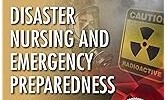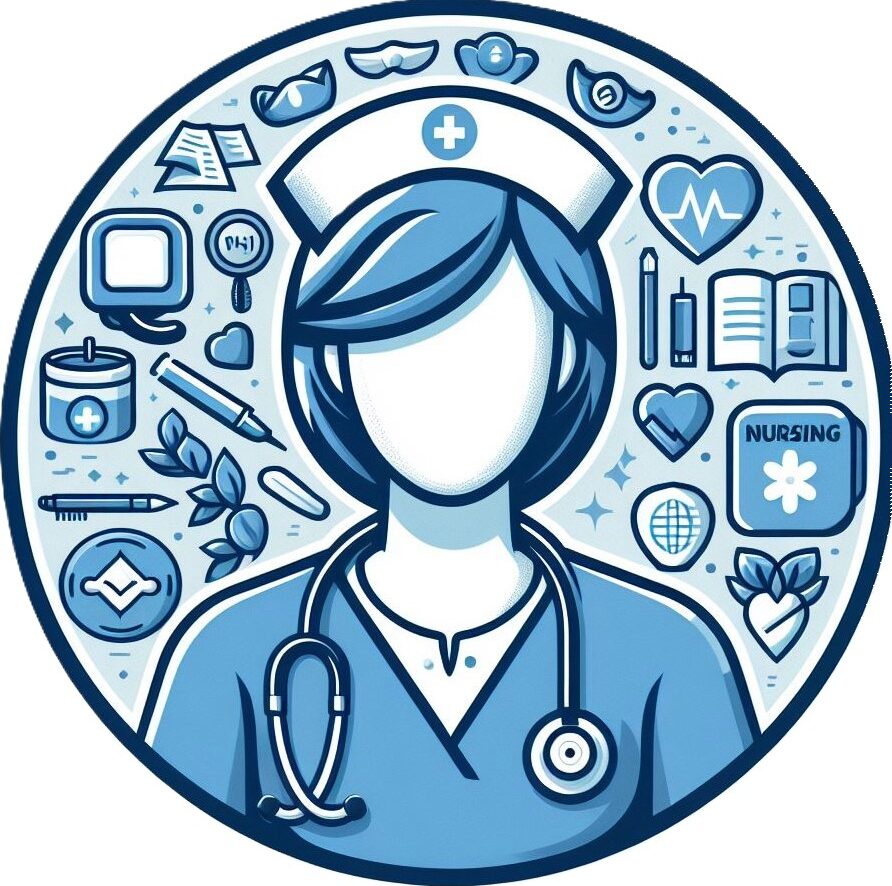 Disaster Preparedness in Nursing is essential and in order to equip this skill for nurses, education and training are at the core of disaster preparedness for nurses. It’s crucial for healthcare providers to have a strong foundation in dealing with emergencies. But why is this so important? we are nurses who are often on the front lines during any kind of disaster—whether it’s a natural catastrophe such as a hurricane or a global pandemic. Having the right training ensures you are ready to handle any situation that comes your way.
Disaster Preparedness in Nursing is essential and in order to equip this skill for nurses, education and training are at the core of disaster preparedness for nurses. It’s crucial for healthcare providers to have a strong foundation in dealing with emergencies. But why is this so important? we are nurses who are often on the front lines during any kind of disaster—whether it’s a natural catastrophe such as a hurricane or a global pandemic. Having the right training ensures you are ready to handle any situation that comes your way.
Education and training usually come into different methods regular training sessions or simulation exercises.
Let’s focus on regular training sections where you concentrate on understanding the different protocols needed during disasters. Nurses learn how to triage and prioritize patients based on the severity of their conditions. This is key when resources are limited or the healthcare system is overwhelmed. Plus, these training sessions often include evacuation procedures and safety measures for different scenarios, so as nurses, you know exactly what steps to take in any crisis.
What’s about participating in simulation exercises? It is another essential part of this training. Imagine role-playing a disaster scenario to practice your skills—it’s like a rehearsal before the real event. These simulations provide a safe space to make mistakes, ask questions, and learn. They enhance readiness by making sure you feel confident when you are called to action.
Furthermore, it’s also important for you as nurses to stay updated with the latest protocols and procedures as healthcare guidelines evolve. A well-prepared nurse is not just reacting to emergencies but anticipating them, equipped with the latest knowledge and skills. Continuous learning is vital, turning every piece of updated information into another tool in their toolkit.
Ultimately, solid education and regular training empower nurses. They not only help save lives but also bring calm and order to what could otherwise be chaotic situations. Investing time in these educational foundations means investing in the safety and well-being of patients and communities.
Crafting Effective Emergency Response Plans
It is crucial to know the emergency response plans at your workplace, either hospital or clinics, as emergency response plan is a game-changer for nurses tackling crisis situations. These plans outline everything from who does what to the steps involved in keeping everyone safe. Understanding your role in this massive situation is crucial for a smooth operation when every second counts.
It is important to acknowledge that emergency response plans are tailored to the specific needs of the institution. They could range from simple procedures in smaller clinics to detailed action plans in large hospitals. As nurses, you need to familiarize themselves with these to ensure they’re not left scrambling when a disaster hits. This knowledge is empowering.
On top of institutional plans, there’s also a big need to be aware of community resources. Who else involves? Local agencies and support networks play a massive role in assisting healthcare workers during crises. Knowing who you can call on for additional support, be it medical supplies or volunteer staff, enhances the efficiency and effectiveness of the response.
Therefore, collaboration with these external organizations can enhance response capabilities exponentially. It allows the extension of resources and services just when they’re needed the most. Building these relationships before disaster strikes ensures smoother cooperation and resource sharing when time is of the essence.
Finally, being a part of crafting these plans can offer valuable insights and ideas from a nurse’s perspective. This way, you can help shape protocols to fill any practical gaps and ensure the plans are as comprehensive and workable as possible. After all, hands-on experience in healthcare provides a perspective that’s both practical and essential in planning for emergencies.
Mastering Triage and Communication in Crisis Situations
In order to mastering your preparedness skills in nursing, confident triage and effective communication skills is highly vital.
Yes, triage is a must have skill, it’s essential. Nurses must be adept at quickly assessing patients to determine who’s critically in need of care and who can wait. This isn’t always easy when faced with numerous patients all at once, but it’s vital for ensuring the best outcomes in emergencies. Proficiency in triage can make the difference in life-or-death situations.
Adapting triage protocols as situations evolve is another aspect of mastery. Disasters are unpredictable; a nurse’s ability to modify their approach on the fly is crucial. This means being ready not just for what you’ve trained for but being flexible enough to handle curveballs that real-life situations occur.
And then effective communication is equally key. In a crisis, clear, concise communication can prevent chaos. Within healthcare teams, maintaining open lines of communication ensures everyone is on the same page, reducing errors and improving patient outcomes. This might mean using specific communication tools or protocols in high-stress scenarios.
Apart from that, interacting with emergency services and authorities also relies heavily on solid communication skills. Establishing these channels means that critical information—and patients—can be moved smoothly and swiftly.
Effective communication assists in handling the challenge of communicating with the general public and patients. Nurses should practice delivering calm, clear instructions and reassurances, even when they may not have all the answers. This helps manage panic and misinformation, keeping the focus on effective care and assistance.
Therefore, enhancing these triage and communication skills not only helps in dealing with disasters more effectively but also boosts the overall confidence and morale of the entire healthcare team. It’s about creating a cohesive, efficient response when time and clarity are of the essence.
Maximizing Resource Management and Continuous Improvement
The final part of this article is maximizing resource management and continuous improvement to master preparedness skills for nurses.
Indeed, managing resources effectively can be the difference-maker between a well-handled emergency and chaos. Nurses play a central role in this, ensuring that supplies are available, equipment is functioning, and there’s enough staff on hand when emergency situation arises.
Regular inventory checks should become second nature. Making sure there’s enough of everything—especially crucial medications and personal protective equipment (PPE)—is a big part of preparedness. During a disaster, you can’t afford to run out of these essentials.
Let’s move on collaboration, collaboration with interdisciplinary teams is key. Working closely with other healthcare professionals and support staff maximizes resource use. Everyone brings something to the table, and a united team is better equipped to handle a crisis.
Next, maintaining networks with local agencies and organizations is pivotal. These relationships can be lifesavers, offering additional resources and manpower when internal systems are stretched to the limit. Knowing who to call and when can hasten response times.
After the emergency occurred, continuous improvement through after-action reviews is another crucial step. After dealing with a disaster, gathering insights about what went well and what didn’t is essential. It’s creating a feedback loop that turns each experience into a learning opportunity.
Therefore, encouraging staff to offer feedback allows you to refine disaster preparedness plans, ensuring they’re as practical and effective as possible. This mindset fosters an environment where learning never stops, enhancing readiness and performance.
